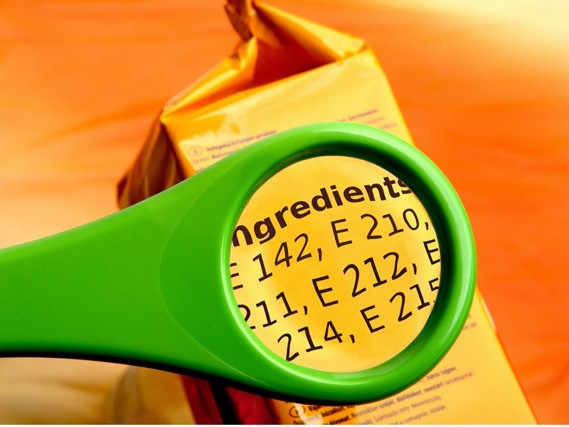Listen to the full conversation between Professor Clare Collins, and Dr Kerith Duncanson, here.
What Is a Food Additive?
Food additives are substances added to food to improve shelf life, safety, appearance, flavour, or texture. While early additives included salt for preserving meat or vinegar for pickling, modern food manufacturing uses a broad range of ingredients to meet safety standards, extend shelf life, and ensure consistent taste and quality.
In Australia, additives are carefully regulated by Food Standards Australia New Zealand (FSANZ). On food labels, they’re characterised by their function (e.g. preservative, sweetener) and often labelled by their number (e.g. 322 for lecithin) to simplify longer chemical names.
Types of Food Additives (And What They Do)
Category | Function | Common Examples | Additive Numbers |
Preservatives | Prevent spoilage and microbial growth | Sulfites, nitrates | 220–228, 249–252 |
Colourings | Enhance or restore colour | Tartrazine, carmine | 102, 120 |
Flavour Enhancers | Boost or modify taste | MSG, disodium inosinate | 621, 631 |
Sweeteners | Provide sweetness with less sugar | Aspartame, stevia, sucralose | 951, 960, 955 |
Emulsifiers | Keep oil and water mixed | Lecithin, polysorbate 80 | 322, 433 |
Stabilisers & Thickeners | Improve texture and prevent separation | Guar gum, xanthan gum | 412, 415 |
Antioxidants | Prevent fat spoilage | Ascorbic acid, tocopherols | 300, 307 |
Who Might Be Sensitive to Food Additives?
Most people consume food additives without problems. However, a small subset of the population may experience adverse reactions, such as:
- Asthma symptoms: Linked to sulphites or benzoates, and typically causing exacerbation of asthma symptoms in 5-10% of people with asthma.
- Hyperactivity in children: Some artificial colours and preservatives have been linked to hyperactivity in children.
- Gastrointestinal upset: Additives like sorbitol or emulsifiers may trigger symptoms in those with IBS.
- Skin reactions: In some rare cases, people can experience reactions such as hives, or rashes in response to certain additives
Sensitivity varies greatly and is highly individual. If someone has consistent symptoms after eating certain processed foods, keeping a food and symptom diary, along with help from an Accredited Practising Dietitian, can be helpful in identifying patterns and potential triggers.
Should You Avoid Food Additives?
Food additives are found in many foods, and you may not realise you are eating them. The most commonly used additives include emulsifiers, flavour enhancers, preservatives, food acids, colourings, and raising agents.
Reactions to food additives can occur in some individuals, but the extent of this sensitivity is not yet clearly established. However, a recent review of research on the role of food additives in gut health suggests that various additive categories can potentially damage the gut lining and alter the types of beneficial and harmful bacteria in the microbiome - processes that can compromise gut function and increase the risk of inflammatory bowel conditions.
The Bigger Picture: Processed Foods & Dietary Patterns
Food additives are often found in ultra-processed foods (UPFs), products that are highly manufactured and include different additives such as flavours, colours, preservatives, emulsifiers, salt, fat, or added sugars. While additives themselves are regulated for safety, diets high in UPFs provide less fibre, fewer micronutrients, and fewer whole food, unprocessed ingredients.
While it may be challenging to avoid additives entirely, focus on increasing your awareness of what additives are in the foods you usually eat, and look for brands with fewer additives, while boosting your intake vegetables, fruits, and whole grains – try out some of our top recipes to start!
Want to learn more? Check out our guide to understanding processed foods.













